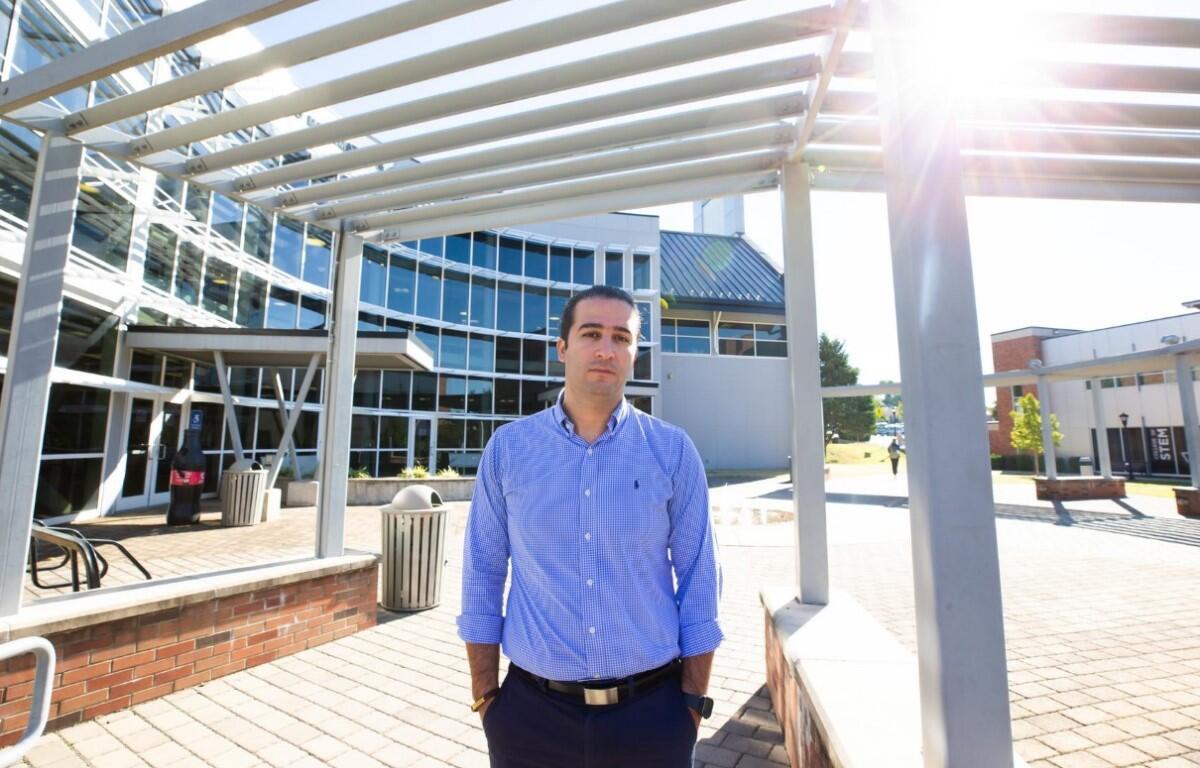CLARKSVILLE, TN (CLARKSVILLE NOW) – A local Iranian professor is among thousands across the world wondering what may lie ahead for family and friends back home as violent crackdowns on protests continue in Iran.
Saeid Samadi-Dana, an Austin Peay State University computer science assistant professor, is speaking out against the brutality of the Islamic Regime. As demonstrations against the death of 22-year-old Mahsa Amini enter another week, Samadi-Dana explains the horrors the nation is plagued with and how the crackdowns have resulted in the deaths of over 100 people.
How it started: Masha Amini’s hijab
Women in Iran are required to wear a hijab, or headscarf, when out in public or around men outside of their family. Masha Amini, 22, was arrested by Iranian police in September for “wearing an inappropriate hijab,” according to CBS News.
CBS reported Amini was imprisoned but later transported to the hospital, where she remained in a coma for three days until she died. The Iranian government said she suffered a heart attack while in detention, but the woman’s family and the people of Iran believe she was attacked by police.

“Everyone, no matter what religion you are practicing, like if you are Christian, you are Jewish, if you are atheist, or practically any other religion, is forced to wear a hajib. You have to wear a hajib,” said Samadi-Dana noting that failing to do so can result in imprisonment or death.
The protests are centered on “Women, Life, Freedom,” a slogan meant to recognize the importance of women, especially their importance in elevating the lives and liberties of all people.
“They don’t just seek justice for Masha. They are looking for justice for all the Iranian people. They want to change the regime. They don’t look just for punishment for those that made this happen. This is not just someone’s fault. This is systematic genocide against the Iranian people,” Samadi-Dana told Clarksville Now.
Islamic government
The Iranian Islamic Revolutionary Guard Corps, designated as a terrorist organization by several governments including the United States, has been responding to these protests with lethal force.
“The Revolutionary Guard, they attacked students at Sharif University. They tortured and imprisoned a lot of the students. Imagine that you go to a university and you see police beating, attacking, shooting students. That’s something you never hear from any other university in the world. That happens in Iran, which is controlled by the Islamic regime,” said Samadi-Dana.
The brutality against the Iranian people doesn’t stop there. It also translates to those practicing different religions or even no religion at all.
“If you’re a Muslim and then you become an atheist, they can execute you. They can just kill you for being a non-believer in God. So that’s why you see that people are not talking about their religion.”
In addition, Samadi-Dana said the Iranian people are subject to fear and violence over sexual orientation.
“The LBTQ+ community, they don’t have any voice because homosexuality in Islam is what they call ‘haram,’ which means ‘forbidden’ in Islam. So if you are also a homosexual or any member of this LGBTQ+ community, you are in danger of being executed. They have done it before,” Samadi-Dana said. “So that’s why the people in Iran are chanting. They are trying to get back their freedom. So everyone, no matter of their religion, their sexual orientation, their gender identity – they are trying to get their freedom back.”
The families
He has family in Iran, and as the nation continues to crack down on protests, communication with the rest of the world has been cut off.
“I haven’t been able to talk with my brother for two weeks, and I have had only one message on WhatsApp from my mother,” Samadi-Dana said. “They don’t have access to the internet.”
The professor said he’s worried about the safety of his family and the people of Iran.
“A lot of Iranian people here in the U.S. and Canada, or any place in the world, are worried about their families’ safety,” he said. “Because it’s not just about the people who are protesting. I’m not sure if my mother goes out just buying groceries, she’s going to come back alive.”
What can you do?
Samadi-Dana told Clarksville Now he has seen the support that Ukraine has received as the war rages. He said he hopes to see the same support for the Iranian people.
“What I expect from people in our community in Clarksville, or in Tennessee, or in Nashville, or in the United States, or all the people around the world, is to be the voice of all the women in Iran, all the women and all the people. All humans deserve to live in a better place and a better situation.”
News from Iran is sporadic and difficult to confirm, but according to Iran Human Rights, more than 150 people have been killed in the protests as of Oct. 4.
“If we get rid of the Islamic regime in Iran, hopefully we are not going to have these extremes like killing, torturing and imprisoning people just because they don’t want to follow exactly what they (Islamic regime) do,” Samadi-Dana said.
He suggested several ways to help the people of Iran.
- Show solidarity or lift Iranian voices on social media through platforms such as Instagram, Twitter and TikTok.
- Use social media to find women’s rights protests nearby.
- Visit human rights websites such as the Center for Human Rights in Iran, the Abdorrahman Boroumand Center and Amnesty International.


